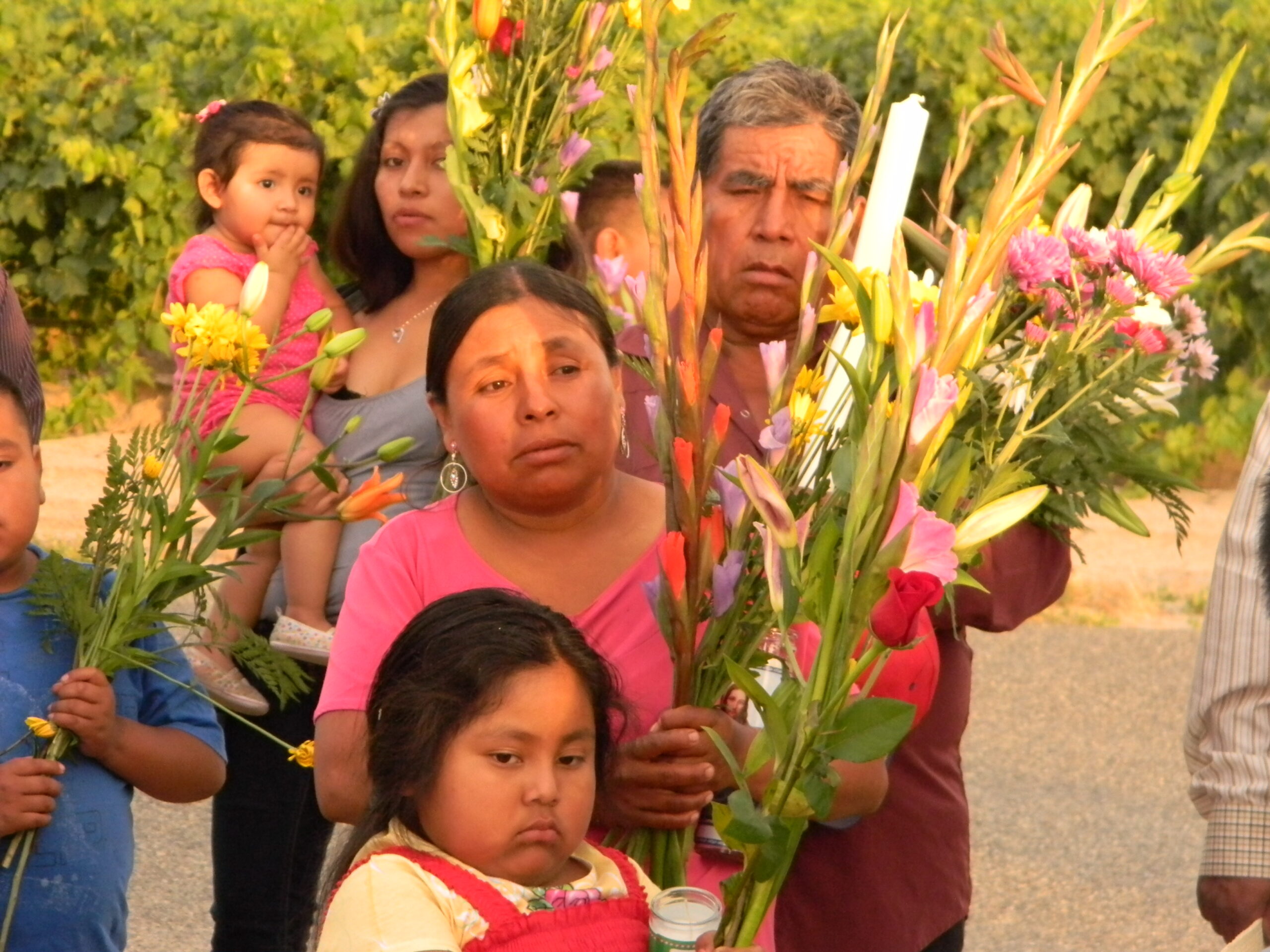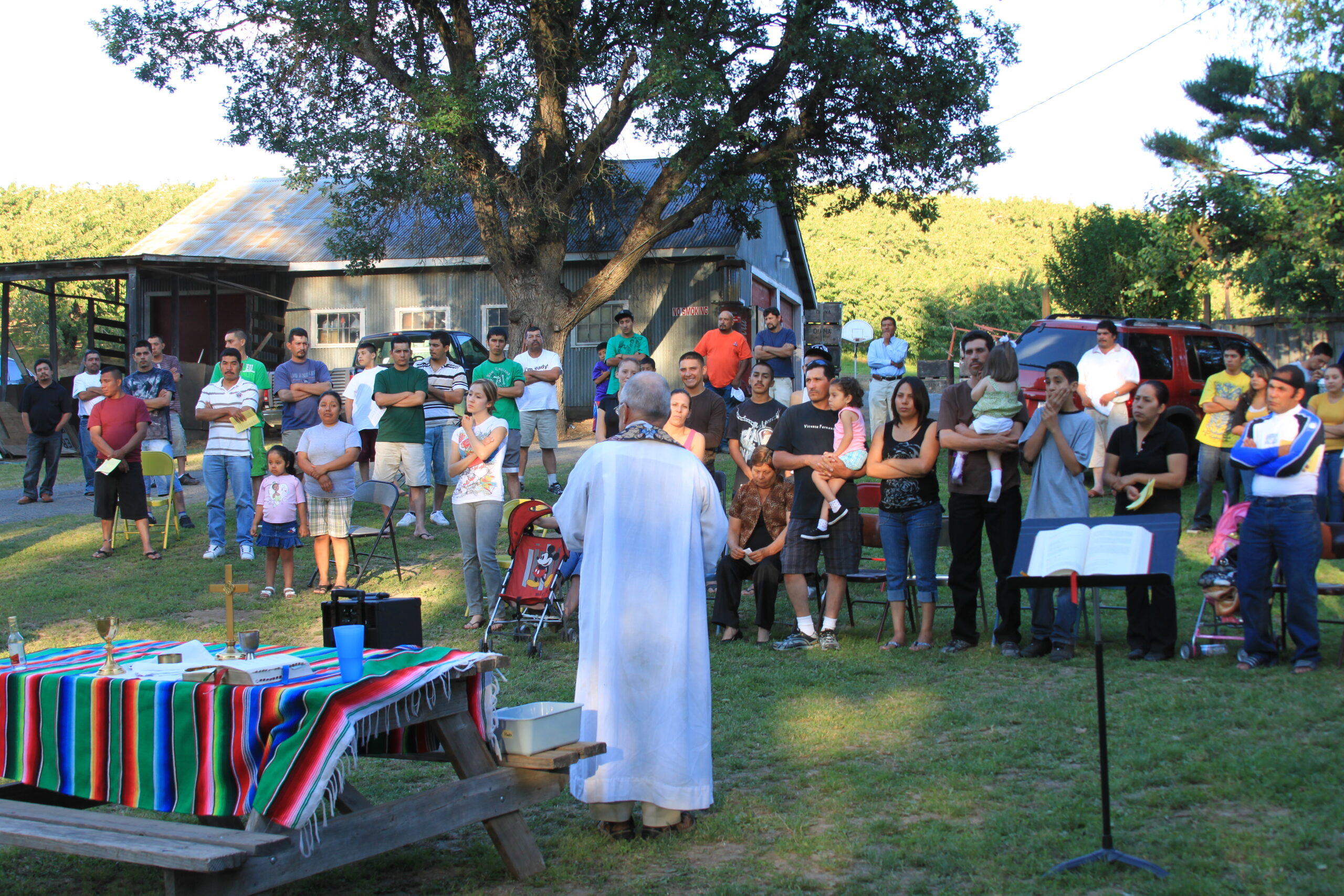Heavy burdens / Cargas Pesadas
Cargas Pesadas
“No pongan cara triste como los hipócritas….
No andan preocupados….
No juzguen…
Sácate primero la viga que tienes en tu propio ojo…
Preparan pesadas cargas muy difíciles de llevar y echan sobre las espaldas de la gente.”
Nuestra fe no debe ser gravosa ni difícil. Triste y sombrío no es el mensaje de Jesús. Fueron los escribas y fariseos quienes hicieron la vida espiritual sombría, pesada y onerosa. Los pobres, los enfermos, los ciegos, los marginados de la época de Jesús sabían lo que Jesús quería decir y quiénes eran los que ataban cargas pesadas y las ponían sobre sus hombros. Fueron los líderes religiosos quienes los avergonzaron y condenaron. Dijeron de Jesús: que él “hablaba con autoridad”. (Mt. 7:29) Jesús caminó con los pobres. Nunca los reprendió ni les exigió nada. Su mensaje no se trataba de una lista de requisitos para recibir su amor.
Sé que muchas personas escriben y crean programas de educación religiosa y formación sacramental con muy buenas intenciones, pero ¿a quién intentan llegar? Es importante que enseñemos a la gente, pero la orden de Jesús fue: “Vayan y hagan que todos los pueblos sean mis discípulos. Bautícenlos en el Nombre del Padre y del Hijo y del Espíritu Santo, y enséñenles a cumplir todo lo que yo les he encomendado”. (Mt. 28: 19-20)
En los Hechos de los Apóstoles, el día de Pentecostés, 3.000 personas respondieron a Pedro: “Los que creyeron fueron bautizados, y ese día se les unieron alrededor de tres mil personas. Acudían asiduamente a la enseñanza de los apóstoles y a la vida convivencia, a la fracción del pan y a las oraciones.”(Hechos 2: 41-42) Los conversos el día de Pentecostés recibieron el Bautismo, el Espíritu Santo y la Eucaristía. La enseñanza siguió a su evangelización ese día.
El siguiente párrafo es de “Camina con mi pueblo”. (Un libro que se está preparando para su publicación, esperemos que en junio)
Evangelización no es adoctrinamiento. Si bien la doctrina es una parte importante del crecimiento en la fe, el deseo de saber más sobre la fe surge de la experiencia de un encuentro con lo divino. En Discípulos llamados a ser testigos, la Conferencia de Obispos Católicos de los Estados Unidos afirma: “La nueva evangelización invita al hombre y la cultura moderna a una relación con Jesucristo y su Iglesia”.[1] Es el testimonio el que fomenta esta relación, como dijo el Papa Pablo VI: “El hombre contemporáneo escucha más a gusto a los que dan testimonio, que a los que enseñan o si escuchan a los que enseñan, es porque dan testimonio”.[2]
[1] Disciples Called to Witness, USCCB, 2012, p. 9.
[2] Pope Paul VI, EN 41.
(Si tienes observaciones o preguntas para Padre Migrante, envían las a padremigrante@gmail.com)
Heavy burdens
“Do not look gloomy like the hypocrites….
Do not worry….
Do not judge…
Remove the beam from your own eye…
“They tie up heavy burdens and lay them on people’s shoulders.”
Our faith should not be burdensome or difficult. Sad and gloomy is not the message of Jesus. It was the Scribes and Pharisees who made spiritual life gloomy, heavy and burdensome. The poor, the sick, the blind, the outcasts of Jesus’ time knew what Jesus meant and who were the ones tying up heavy burdens and placing them on their shoulders. It was the religious leaders who shamed them and condemned them. They said of Jesus, “He taught as one having authority.” (Mt. 7:29) Jesus walked with the poor. He never chided them or made demands of them. His message was not about a list of requirements to receive his love.
I know that many people write and create programs of religious education and sacramental formation with very good intentions, but who are they trying to reach. It is important that we teach people, but the order of Jesus was, “Go, and make disciples of all nations, baptizing them in the name of the Father, and of the Son, and of the Holy Spirit, teaching them to observe all that I have commanded you. (Mt. 28: 19-20)
In the Acts of the Apostles, on the day of Pentecost, 3,000 people responded to Peter, “Those who accepted his message were baptized, and about three thousand persons were added that day. They devoted themselves to the teaching of the apostles and to the communal life, to the breaking of the bread and to the prayers. (Acts 2: 41-42) The converts on the day of Pentecost received Baptism, the Holy Spirit and Eucharist. The teaching followed their being evangelized on that one day.
The following paragraph is from “Walk with My People.” (A book that is being prepared for publication, hopefully in June)
Evangelization is not indoctrination. While doctrine is an important part of growing in the faith, the desire to grow more in the faith flows from the experience of an encounter with the Divine. In Disciples Called to Witness, the United States Conference of Catholic Bishops (USCCB) states, “The New Evangelization seeks to invite modern man and culture into a relationship with Jesus Christ and his Church.”[1] It is witness that fosters this relationship as Pope Paul VI said, “Modern man listens more willingly to witnesses than to teachers, and if he does listen to teachers, it is because they are witnesses.”[2]
[1] Disciples Called to Witness, USCCB, 2012, p. 9.
[2] Pope Paul VI, Evangelii Nuntiandi 41.
(If you want Padre Migrante to respond to your concerns or questions, write to: padremigrante@gmail.com)
Oh Jesús, tú nos llamas: “Síganme”. Bendice, Señor, a todos los que acogen tu llamado. Puede que el camino no sea fácil, pero tenemos la confianza de que todo es posible si caminamos contigo. Que este viaje nos abra los ojos a las maravillas de tu amor por nosotros. Oramos por toda tu gente, por todos los creyentes e incrédulos, por los líderes y seguidores. Oramos por la sanación, el perdón, la compasión, la justicia y la paz. Oramos para que, al seguirte, nosotros también podamos ser pescadores de hombres. Bendícenos en nuestro viaje.
O Jesus, you call us, “Come after me.” Bless, O Lord, all who welcome your call. The path may not be easy, but we have confidence that all things are possible if we walk with you. May this journey, open our eyes to the wonders of your love for us. We pray for all your people, for all believers and unbelievers, for leaders and followers. We pray for healing, for forgiveness, for compassion, for justice, for peace. We pray that as we follow you, we too can be fishers of men. Bless us on our journey.



